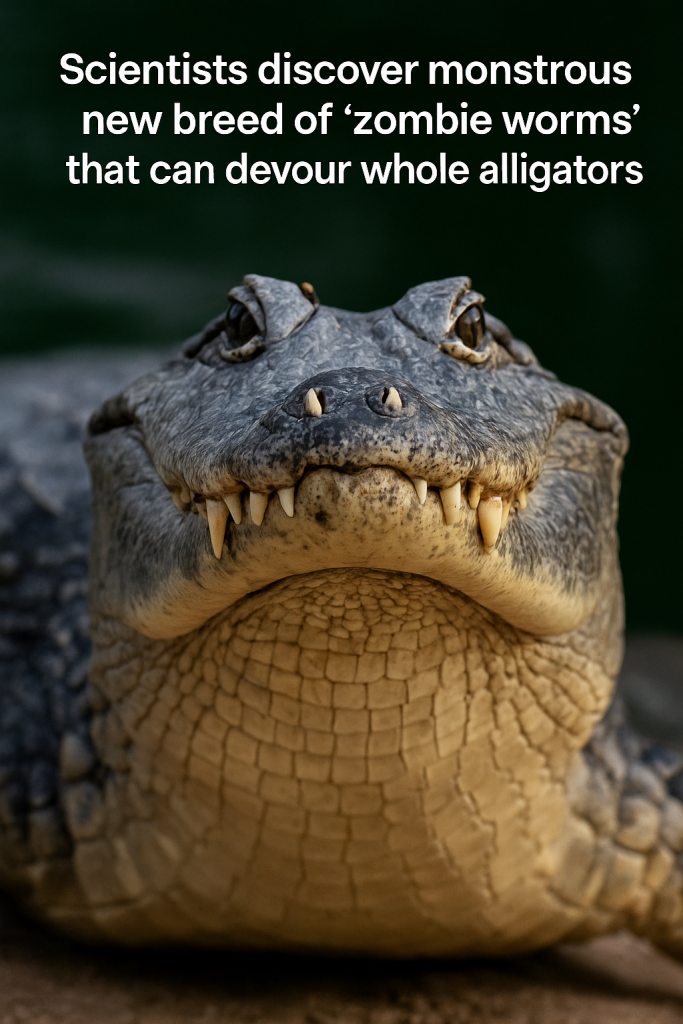In a groundbreaking discovery from 2024, scientists have identified a monstrous new breed of so-called “zombie worms” capable of consuming entire alligator carcasses, revealing unprecedented insights into nature’s powerful decomposers. These scavenging marine worms, unlike any species previously documented, have stunned researchers with their voracious appetite and unique biology.
The term “zombie worms” has long been used to describe certain species within the Osedax genus, notorious for their eerie ability to feed on whale bones deep beneath the ocean. However, this newly discovered species stretches scientific understanding far beyond previous limits by preying on alligator remains in freshwater and brackish environments, a habitat shift that has baffled biologists.
Discovery and Location
The discovery occurred during a recent expedition in the wetlands of the southeastern United States, where biologists investigating the decomposition of native American alligator carcasses made a startling observation. Large colonies of elongated, translucent worms were found embedded around the bones of recently deceased alligators. Laboratory analysis confirmed the worms belong to a previously unknown species closely related to those infamous “bone-eating” worms but adapted to thrive in much shallower, less saline waters.
Biology and Feeding Mechanism
Unlike other scavengers, these zombie worms do not possess a mouth or digestive tract akin to most animals. Instead, they rely on symbiotic bacteria housed within their bodies that secrete powerful enzymes capable of breaking down tough bone material over time. This ingenious biological mechanism enables them to slowly but efficiently dissolve the calcium-rich skeletons of alligators, completely consuming carcasses that would otherwise persist in the ecosystem for months or years.
What makes this new species particularly monstrous is the scale and speed at which they operate. Scientists report that a single cluster of these worms can devour an entire alligator skeleton in less than 60 days, a rate far exceeding known marine bone worms. The worms’ extraordinary ability to recycle nutrients plays a critical role in wetland ecosystems by accelerating organic matter turnover and influencing scavenger food webs.
Ecological and Scientific Implications
The discovery of these zombie worms expands scientific knowledge of decomposition processes beyond ocean depths to freshwater environments. Researchers emphasize that these worms may be more widespread than initially thought and could help explain rapid skeleton recycling in various aquatic habitats. This finding sheds light on complex nutrient cycles and the hidden biodiversity of microbial-animal partnerships.
Researchers also note potential applications for biotechnology, as the enzymes used by these worms to break down bones could inspire new innovations in waste management, biomedical industries, and even forensic science, providing faster methods for skeletal decomposition.
A Glimpse into Nature’s Dark Clean-Up Crew
This astonishing discovery underscores the vast unknowns still lurking in Earth’s ecosystems. While the idea of “zombie worms” may sound like horror fiction, their existence plays a crucial and fascinating role in maintaining environmental balance. As scientists continue to study this monstrous new breed, we gain not only a deeper understanding of life’s adaptability but also a renewed appreciation for nature’s remarkable, if somewhat creepy, clean-up crews.



